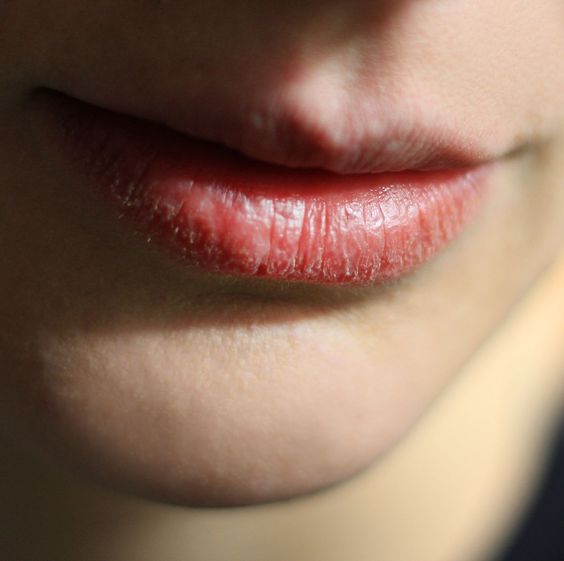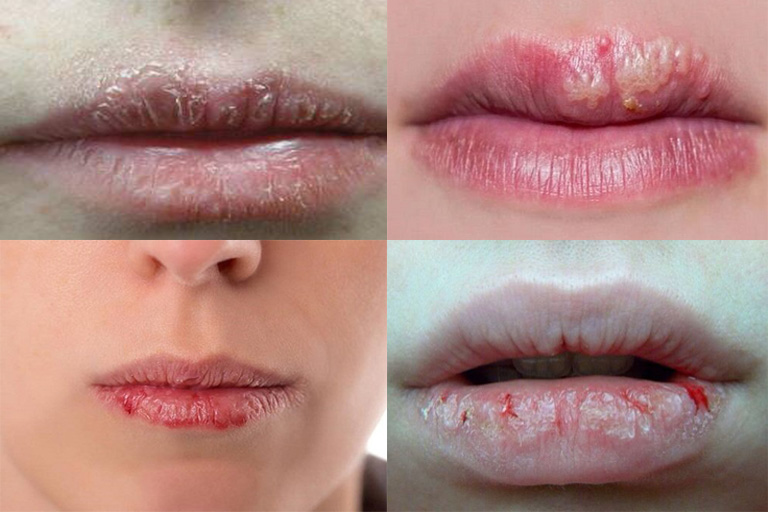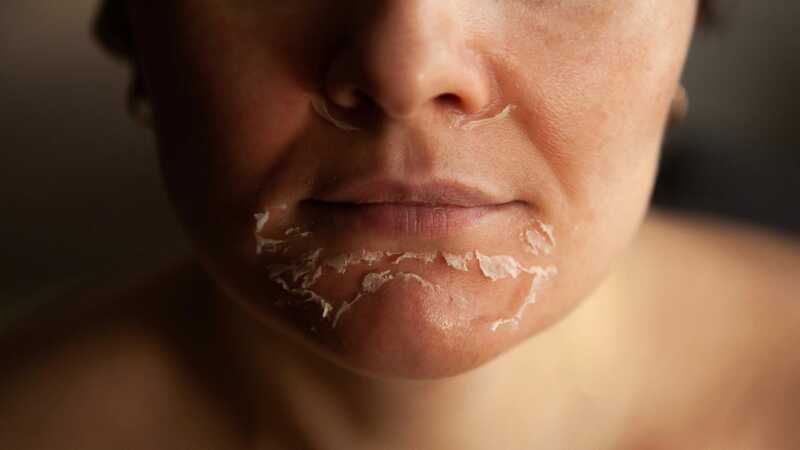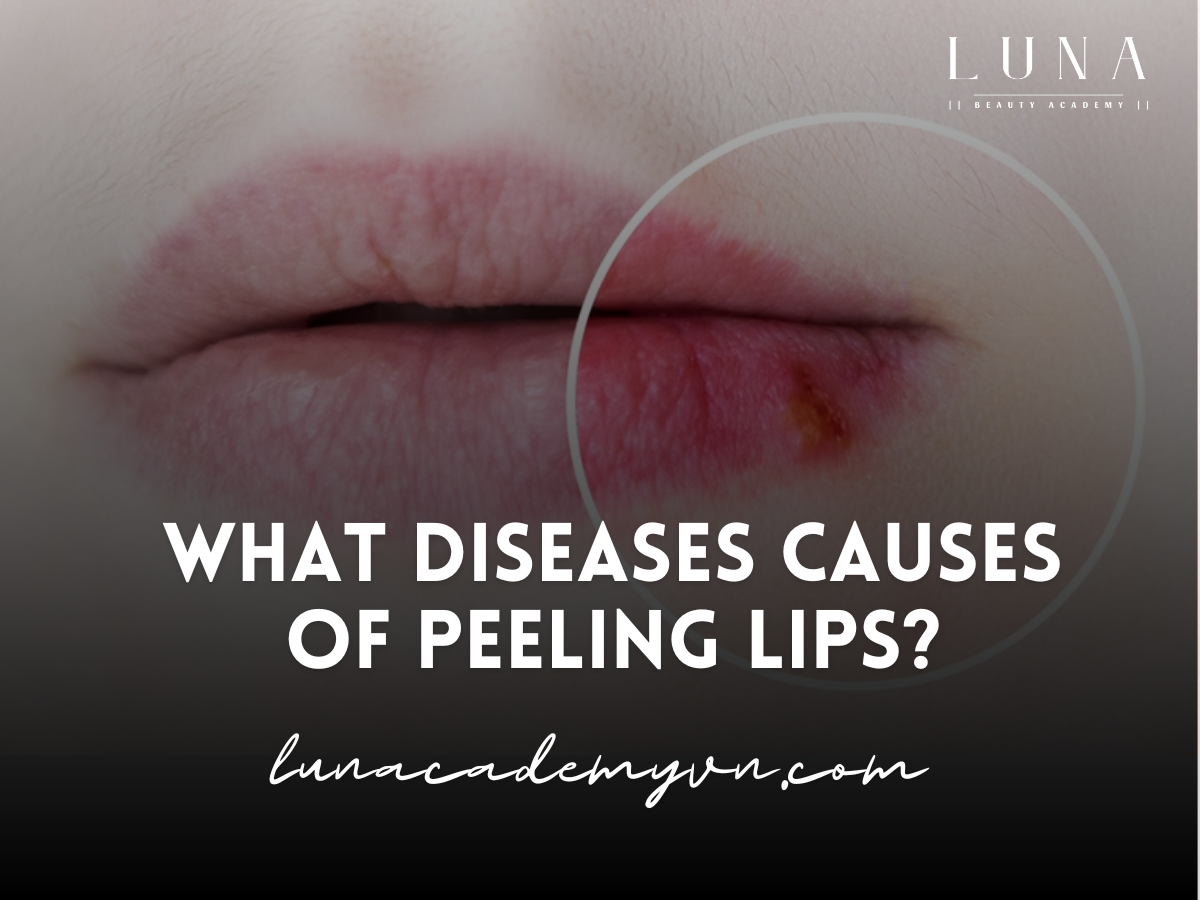Peeling lips can be an uncomfortable and often embarrassing condition that affects your confidence and daily life. Understanding the causes of peeling lips is essential for effective treatment and prevention. While environmental factors can contribute to this issue, various diseases are significant contributors to peeling lips. This article explores the diseases that cause peeling lips, helping you identify the underlying issues and seek appropriate remedies.
Table of Contents
ToggleUnderstanding Peeling Lips
Peeling lips occur when the skin on the lips becomes dry, cracked, and begins to flake away. This condition can lead to soreness and irritation, making it challenging to eat, speak, or smile comfortably. Recognizing the signs of peeling lips is crucial for understanding when to seek medical attention. Common signs include redness, irritation, visible flakiness, and a burning sensation, which can be particularly distressing.

In many cases, peeling lips may be temporary and linked to environmental conditions, such as harsh weather or dehydration. However, persistent peeling can be a symptom of a more serious underlying issue, often requiring medical intervention to identify and address the root cause. Understanding the causes of peeling lips can aid in this process.
Diseases That Cause Peeling Lips
Allergic Reactions
One of the most prevalent causes of peeling lips is allergic reactions. When your lips come into contact with allergens—substances that trigger an immune response—such as certain foods, cosmetics, or environmental irritants, it can lead to inflammation and peeling. Common allergens that may affect lip health include:
- Food Allergens: Nuts, dairy, and shellfish are frequent culprits for those with food allergies.
- Cosmetic Products: Lip balms, lipsticks, or other lip products containing fragrances or preservatives can cause allergic reactions in sensitive individuals.
- Environmental Irritants: Pollen, dust, and pet dander can also contribute to allergic reactions that affect the lips.
Symptoms may include redness, swelling, itching, and flaking of the skin. Identifying and avoiding allergens is essential for managing this condition effectively. Keeping a diary of your diet and products used can help pinpoint triggers that contribute to the causes of peeling lips.
Eczema
Eczema, also known as atopic dermatitis, is another significant cause of peeling lips. This chronic skin condition is characterized by dry, itchy patches on various parts of the body, including the lips. Individuals with eczema may experience flare-ups that lead to peeling, redness, and discomfort. Eczema can be triggered by several factors, including:
- Environmental Conditions: Cold, dry weather can exacerbate eczema symptoms, making the causes of peeling lips even more pronounced.
- Stress: Emotional stress can trigger or worsen eczema flare-ups, leading to increased peeling.
- Irritants: Certain soaps, fragrances, or fabrics can irritate the skin and lead to a flare-up.
Managing eczema typically involves moisturizing the affected areas regularly and avoiding known triggers. Topical corticosteroids may be prescribed to reduce inflammation and soothe irritated skin.

Psoriasis
Psoriasis is an autoimmune condition that accelerates skin cell turnover, resulting in thick, scaly patches. When this condition affects the lips, it can lead to peeling and discomfort. Symptoms of psoriasis on the lips may include:
- Red, inflamed areas: These patches can be painful and may bleed.
- Dryness and cracking: Affected lips may become very dry, leading to cracks and increased peeling.
Understanding the triggers of psoriasis is crucial for managing flare-ups and recognizing the causes of peeling lips. Common triggers include stress, cold weather, and certain medications. Treatment options often include topical medications, phototherapy, and systemic treatments for more severe cases.
Fungal Infections
Fungal infections, such as oral thrush, can also lead to peeling lips. These infections occur when there is an overgrowth of yeast or fungi in the mouth, causing irritation and peeling of the lip skin. Symptoms of a fungal infection may include:
- White patches: Visible patches on the lips or inside the mouth.
- Soreness and redness: Inflammation of the affected areas, contributing to the causes of peeling lips.
Antifungal medications can help treat these infections effectively, and maintaining good oral hygiene is essential for prevention. If you suspect a fungal infection, consult a healthcare provider for proper diagnosis and treatment.
Vitamin Deficiencies
Another potential cause of peeling lips is vitamin deficiencies, particularly deficiencies in vitamins B, C, and E. These vitamins play essential roles in skin health and repair. A lack of these nutrients can lead to dry, peeling skin on the lips. The symptoms of vitamin deficiencies can manifest in various ways, including:

- Cracking and peeling: Dry, flaky lips that may be painful.
- Generalized skin issues: Other areas of the body may also show signs of deficiency, such as dry skin or rashes.
Incorporating a balanced diet rich in fruits, vegetables, and whole grains can help prevent these deficiencies and maintain overall lip health. Foods high in vitamins, such as citrus fruits (for vitamin C), nuts (for vitamin E), and leafy greens (for B vitamins), should be included in your diet to address potential causes of peeling lips.
Autoimmune Disorders
Autoimmune disorders, such as lupus or pemphigus, can significantly affect the skin, including the lips. These conditions occur when the body’s immune system mistakenly attacks its own cells, leading to inflammation and peeling. Symptoms associated with autoimmune disorders may include:
- Painful sores: Ulcers or lesions on the lips that can be very uncomfortable and are often linked to the causes of peeling lips.
- Extreme dryness: Lips may become excessively dry and cracked.
It’s essential to consult a healthcare professional for proper diagnosis and management if you suspect an autoimmune disorder. Treatment may involve immunosuppressive medications to help control the immune response and reduce inflammation.
Diagnosis of Diseases Causing Peeling Lips
If you’re experiencing persistent peeling lips, seeking medical evaluation is crucial. A healthcare professional can help identify the underlying cause through a thorough physical examination and, if necessary, allergy testing. Understanding the causes of peeling lips will guide appropriate treatment options, allowing for more effective management of the condition.
In some cases, additional tests may be warranted, including skin biopsies or blood tests, to rule out other underlying health issues. Keeping a record of symptoms and any potential triggers can be helpful during consultations.
Treatment Options for Peeling Lips
Addressing peeling lips effectively requires understanding the underlying cause. Treatment options may include:
Home Remedies
For mild cases, home remedies can be beneficial. Consider the following:
- Natural moisturizers: Products like coconut oil, shea butter, and beeswax can provide hydration and protection.
- DIY lip scrubs: Gentle exfoliation using sugar or honey can remove dead skin cells and promote healing.

Medical Treatments
For more severe cases or when peeling lips are linked to an underlying disease, medical treatments may be necessary. These could include:
- Prescription creams or ointments: Topical treatments can reduce inflammation and irritation associated with the causes of peeling lips.
- Dietary supplements: If deficiencies are present, vitamin supplements may be recommended to restore nutrient levels.
Preventive Measures
Taking proactive steps can help prevent peeling lips. Here are some tips for maintaining lip health:
- Stay hydrated: Drinking plenty of water is essential for overall skin health.
- Use lip balm: Regular application of a good quality lip balm can help lock in moisture and protect against environmental factors.
- Avoid irritants: Steer clear of harsh lip products, and be mindful of the ingredients in cosmetics.
- Sun protection: Apply lip products with SPF to protect against sun damage, especially in outdoor settings.
Conclusion
Peeling lips can be a frustrating and uncomfortable issue, often stemming from various diseases. Allergic reactions, eczema, psoriasis, fungal infections, vitamin deficiencies, and autoimmune disorders are some of the primary causes of peeling lips. By understanding these conditions and seeking appropriate treatment, you can achieve healthier, more comfortable lips. If you’re struggling with persistent peeling, don’t hesitate to consult a healthcare professional for guidance tailored to your specific needs. Taking care of your lips not only improves their appearance but also enhances your overall quality of life.
Contact us via other platforms if you have any questions or requests that need to be answered quickly.
Tiktok: www.tiktok.com/@lunabeautyacademy6
Hotline: 034 254 0228
Email: lunabeautyacademy@gmail.com
Address: No. 29, Alley 140/1/2, Lane 140 Nguyen Xien, Thanh Xuan, Hanoi
Luna wishes you success and hopes you will have the best experiences at the academy. If you need advice or answers about anything, please leave your Contact Information With Us, the Luna team will contact you soon. Thank you for reading this article.


















